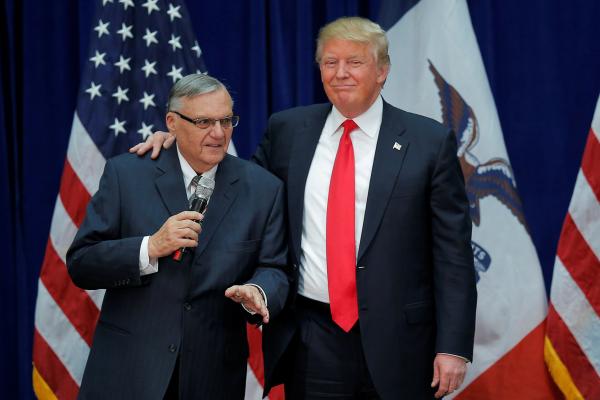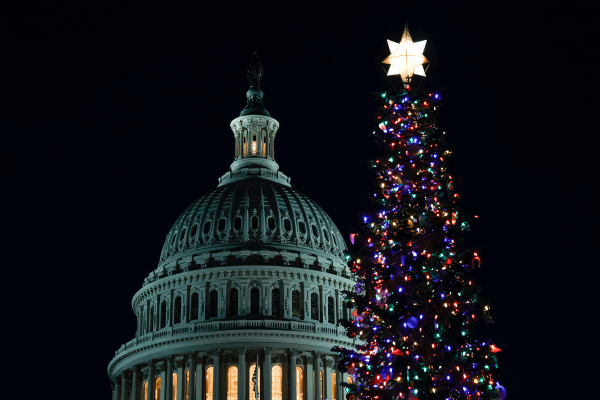When President Donald Trump pardoned Joe Arpaio last week, it was really an attempt to pardon himself — of his racism and racist political strategy. From Trump opening his political career by promoting the racist, conspiratorial birther movement against the legitimacy of the nation’s first black president, to opening his campaign with an ugly assault on immigrants, to many of his appointments and policies since being elected, Trump’s use of overt racism for his own political gain has been very clear.
Racial bigotry is a sin — and the president of the United States practices it explicitly. While implicit racism is always in politics — code language, “dog whistles,” appeals to racial bias in voters — Trump has made racism explicit and given permission for some of his white supporters to do so as well. Donald Trump is a sinner and needs to repent of his racist behavior and policies — he needs to ask for forgiveness, which he has often said he doesn’t need. He does.
Arpaio is a racist thug, found in criminal contempt by a judge in a court of law for continuing his office’s practice of racial profiling and racial discrimination. He arrested Latinos because he thought they might be undocumented immigrants and put them into detention centers that have been called “concentration camps” where they were abused. Joe Arpaio is a racist law enforcement officer who acts like he is above the law. His public service is a sham and a disgrace to the law and to Christian values.
Pardons should only come after repentance. Neither Arpaio nor Trump have repented of their racism and use thereof. Therefore, Donald Trump’s pardon of Joe Arpaio is also a sin in the eyes of God, and an offense to the laws of the land.
Donald Trump’s fueling of racial fear and hate is being played out in our nation’s policies. Incredibly, Trump even justified the Arpaio pardon by saying it got high “ratings” from his constituency. He ran on a platform of anti-immigrant hostility — much like Arpaio — and his base is expecting him to deliver. And now 800,000 lives hang in the balance.
DACA, Deferred Action for Childhood Arrivals, is a program that promised no deportation to those arriving to the United States as children and are now contributing to their new country as students, with jobs, and in the armed forces. As early as this week, the DACA program — in which 800,000 people participate and which affects millions of lives — could be ended by President Donald Trump. Many in the racially motivated core base of white voters he appeals to want him to do that and to deport all those young people.
Here, Jessica Cobian explains what you can do to stop that.
President Trump and his allies want to end the Deferred Action program — forcing young immigrants to live in legal limbo in the only country they know. Ten state attorneys general — led by Texas’ Ken Paxton — have threatened to sue the Trump administration if he doesn’t end the program. Their deadline: next week, Sept. 5.
But in this era of fear, several legislators have stepped up to provide a legal pathway for Dreamers. The 2017 Dream Act has been introduced in both the House and Senate, and would give a legal pathway to citizenship.
As the Trump administration considers ending DACA, we must make it clear that protected status for Dreamers is nonnegotiable.
Got something to say about what you're reading? We value your feedback!






